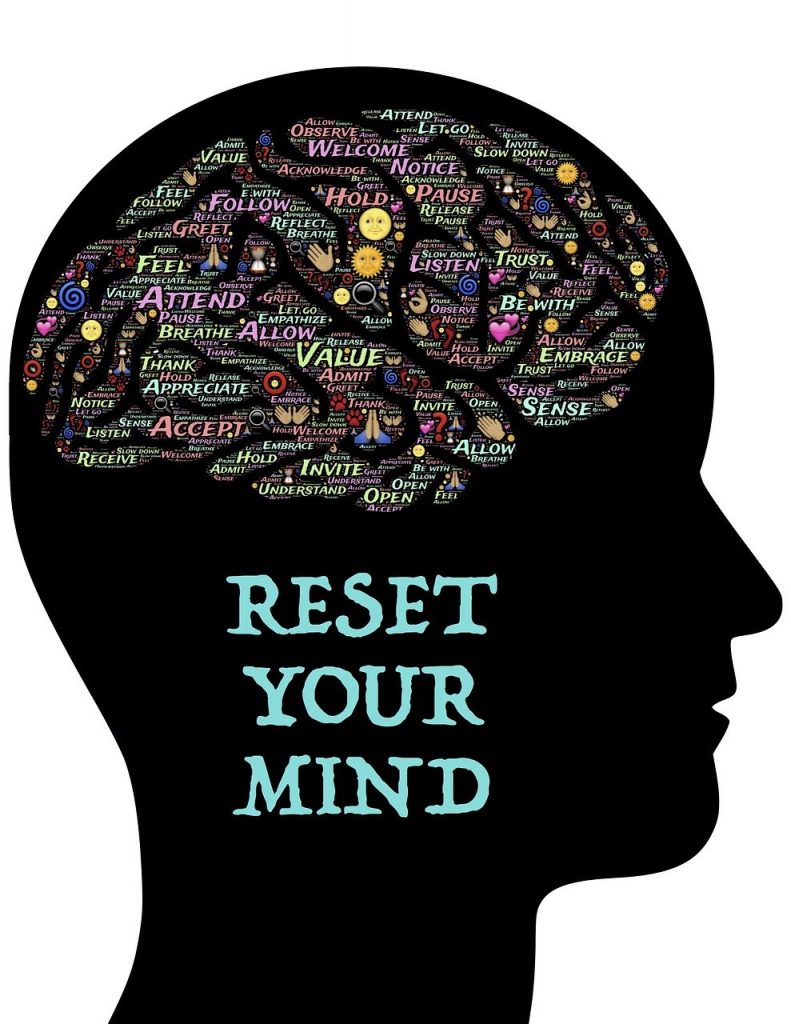So, you’ve probably noticed this before – the incessant scrolling through social media, comparing yourself to others, and feeling like you’re constantly falling short. It’s a trap that many of us fall into, the comparison trap. But here’s the thing, constantly comparing ourselves to others is a surefire way to destroy our self-confidence and inner peace. It’s time to break free and start fostering that inner confidence that we all deserve. In this article, we’re going to explore some practical strategies and mindset shifts to help you overcome the comparison trap and step into your true potential. Get ready to unleash your inner confidence and live a happier, more fulfilling life.

This image is property of pixabay.com.
Understanding the Comparison Trap
The concept of the comparison trap
The comparison trap is a common tendency for individuals to constantly compare themselves to others. It involves evaluating our own worth and abilities based on how we measure up to others in terms of achievements, appearances, wealth, relationships, and other aspects of life. This can lead to feelings of inadequacy, low self-esteem, and a constant desire to meet unrealistic standards set by others.
How the comparison trap affects our confidence
Falling into the comparison trap can significantly impact our confidence levels. When we constantly compare ourselves to others, we tend to focus on our perceived shortcomings and failures rather than acknowledging our own unique strengths and accomplishments. This negative mindset can erode our self-esteem and make it difficult to believe in our abilities. Additionally, constantly seeking validation from others and striving to meet external standards can lead to feelings of insecurity and dissatisfaction with ourselves.
Recognizing when we fall into the comparison trap
It is important to be aware of the signs that indicate we have fallen into the comparison trap. This can include feelings of envy or jealousy when we see others succeed, constantly comparing ourselves to others and feeling inadequate as a result, and constantly seeking validation from others to feel worthy. Recognizing these patterns of thought and behavior is the first step towards breaking free from the comparison trap and fostering inner confidence.
Building a Foundation of Self-Awareness
The importance of self-awareness
Self-awareness is a fundamental aspect of building inner confidence. It involves having a clear understanding of our own emotions, thoughts, strengths, weaknesses, and values. When we have a strong sense of self-awareness, we are better equipped to make choices that align with our authentic selves, rather than getting caught up in comparing ourselves to others. Self-awareness allows us to recognize our own unique qualities and appreciate them, which in turn boosts our confidence.
Practicing mindfulness
Mindfulness is a powerful tool for cultivating self-awareness. By practicing mindfulness, we can develop the ability to observe our thoughts and emotions without judgment. This allows us to detach from the comparison trap and focus on the present moment. Mindfulness exercises, such as meditation or deep breathing, can help calm the mind and increase our self-awareness, enabling us to make conscious decisions that are in line with our values and goals.
Identifying our strengths and weaknesses
Recognizing and acknowledging our strengths and weaknesses is essential for building inner confidence. Take some time to reflect on your achievements, skills, and positive traits. Identify the areas where you excel and the unique qualities that set you apart. Similarly, be honest with yourself about areas where you have room for improvement. Understanding and accepting both your strengths and weaknesses helps cultivate self-awareness and enables you to focus on personal growth without comparing yourself to others.
Accepting and embracing our unique qualities
Each of us possesses a set of unique qualities and talents that make us who we are. Embracing these qualities is key to building inner confidence. Instead of trying to fit into societal expectations or comparing ourselves to others, we should celebrate our individuality. Recognize that your unique qualities contribute to the world in your own special way. Embrace your quirks, talents, and passions, and allow them to shine without the need for comparison.

This image is property of pixabay.com.
Setting Authentic Goals
Understanding the role of goals in building confidence
Setting goals is an essential part of personal growth and building confidence. Goals provide a sense of direction and purpose, giving us a roadmap for success. When we set goals and work towards achieving them, it boosts our self-confidence and provides a sense of accomplishment. However, it is important to set goals that are authentic to us, rather than striving for goals based on what others have achieved or what society expects from us.
Differentiating between external and internal goals
External goals are often driven by societal or external pressures, such as pursuing a certain career path or achieving a specific level of success. On the other hand, internal goals are those that are aligned with our values, passions, and personal growth. Differentiating between these two types of goals is crucial in order to avoid falling into the comparison trap. By setting goals that are authentic to us, we can focus on our own journey rather than constantly comparing ourselves to others.
Aligning goals with our values and passions
When setting goals, it is important to align them with our core values and passions. This ensures that the goals we are working towards are meaningful to us on a deeper level. By pursuing goals that are aligned with our values and passions, we are more likely to experience a sense of fulfillment and satisfaction, regardless of how our achievements compare to others. Setting authentic goals based on our own aspirations and desires helps to foster inner confidence and a sense of purpose.
Celebrating incremental progress
In the pursuit of our goals, it is essential to celebrate small victories along the way. Recognizing and acknowledging our progress, no matter how small, boosts our confidence and motivation. Instead of solely focusing on the end result or comparing our progress to others, we should appreciate the steps we have taken and the growth we have achieved. Celebrating incremental progress reinforces our belief in ourselves and our ability to achieve what we set out to do.
Avoiding comparison-based goals
Setting goals based on comparison to others can be detrimental to our confidence and overall well-being. Instead of trying to outdo someone else or seeking validation from external sources, focus on setting goals that are meaningful to you. It is important to remember that everyone’s journey is unique, and comparing our achievements to others only undermines our own progress. By setting goals that are true to ourselves, we can cultivate inner confidence and a sense of fulfillment that comes from personal growth.
Cultivating a Positive Mindset
Recognizing negative thought patterns
A positive mindset is vital for building inner confidence and breaking free from the comparison trap. One of the first steps in cultivating a positive mindset is recognizing negative thought patterns. These may include self-doubt, self-criticism, and negative self-talk. Pay attention to your inner dialogues and thoughts, and identify patterns of negativity. By becoming aware of these negative thoughts, you can begin to challenge and reframe them.
Challenging and reframing negative thoughts
Once you have identified negative thought patterns, it is important to challenge and reframe them. Replace negative self-talk with more positive and empowering statements. For example, if you catch yourself thinking, “I will never be as successful as them,” reframe it to say, “I have unique strengths and abilities that I can use to carve my own path to success.” By consciously challenging and reframing negative thoughts, you can shift your mindset and build inner confidence.
Practicing positive affirmations
Positive affirmations are powerful tools for cultivating a positive mindset. These are positive statements or reminders that you repeat to yourself to reinforce positive beliefs and counteract negative thoughts. Create a list of affirmations that resonate with you and reflect your goals and values. Repeat them daily, either in your mind or out loud, to reinforce positive beliefs about yourself and build inner confidence.
Surrounding ourselves with positivity
The people and environment we surround ourselves with can greatly influence our mindset and confidence levels. Choose to spend time with individuals who uplift and support you, rather than those who bring you down or constantly engage in comparison. Create an environment that is conducive to positivity by surrounding yourself with motivational quotes, affirmations, and objects that inspire you. By immersing yourself in positivity, you can cultivate a more optimistic mindset and enhance your confidence.
Practicing gratitude
Gratitude is a powerful practice for shifting our focus from comparison and negativity to appreciation and contentment. Take time each day to reflect on and appreciate the things you are grateful for in your life. This can range from the simple pleasures to the meaningful relationships and opportunities you have. By practicing gratitude, you develop a mindset of abundance and recognize the value and worth in your own life, boosting your confidence and overall well-being.

This image is property of pixabay.com.
Developing Self-Compassion
Understanding the concept of self-compassion
Self-compassion involves treating ourselves with kindness, understanding, and acceptance, particularly during times of failure or struggle. It is about acknowledging that we are only human and that everyone makes mistakes. Cultivating self-compassion allows us to be gentle with ourselves and provides the emotional support we need to bounce back from setbacks and cultivate inner confidence.
Treating ourselves with kindness and understanding
In order to develop self-compassion, it is important to treat ourselves with kindness and understanding. When faced with challenges or setbacks, rather than criticizing ourselves or engaging in negative self-talk, we should offer ourselves the same level of care and understanding that we would give to a loved one. This involves speaking to ourselves with kindness, offering encouragement, and reminding ourselves that mistakes are a natural part of the learning and growth process.
Embracing imperfections and mistakes
Embracing imperfections and mistakes is a crucial aspect of self-compassion. Instead of viewing imperfections as flaws or failures, we can choose to see them as opportunities for growth and learning. Recognize that no one is perfect and that making mistakes is a normal part of being human. By embracing our imperfections and mistakes, we can release the need for comparison and cultivate inner confidence based on self-acceptance and self-love.
Practicing self-forgiveness
Practicing self-forgiveness is an important part of developing self-compassion. Holding onto past mistakes or resentments towards ourselves only perpetuates negative thought patterns and hinders our ability to move forward. By practicing self-forgiveness, we acknowledge our imperfections, learn from our mistakes, and give ourselves permission to grow and evolve. Self-forgiveness allows us to let go of the past and nurtures a sense of self-compassion and inner confidence.
Celebrating our achievements
In addition to embracing imperfections and mistakes, it is important to celebrate our achievements, no matter how big or small. Take time to acknowledge and honor your accomplishments. This could be something as simple as completing a task or achieving a personal goal. By celebrating our achievements, we build self-confidence and reinforce our belief in our abilities. It also serves as a reminder that we are capable of success, which helps counteract the comparison trap.
Embracing Authenticity
Understanding the power of authenticity
Authenticity is the practice of embracing and expressing our true selves, without succumbing to societal expectations or the need for comparison. When we embrace authenticity, we honor our own unique qualities, values, and passions. This allows us to lead a more fulfilling and satisfying life, based on our own terms rather than trying to fit into predefined molds. Authenticity is a powerful tool for building inner confidence and breaking free from the comparison trap.
Letting go of societal expectations
One of the first steps in embracing authenticity is letting go of societal expectations. Society often imposes certain standards or norms that we are expected to meet, whether it be in terms of appearance, success, or relationships. By recognizing that these expectations are often unrealistic and limiting, we can instead focus on our own values and desires. Letting go of societal expectations allows us to live according to our own terms and build inner confidence.
Honoring our true selves
Honoring our true selves involves recognizing and embracing our own unique qualities, values, and passions. Take time to reflect on what is truly important to you and what brings you joy and fulfillment. Identify the aspects of yourself that make you feel most alive and align your actions and choices with those aspects. By honoring our true selves and living authentically, we cultivate a deeper sense of self and build inner confidence.
Expressing ourselves authentically
Authenticity is not just about recognizing our true selves, but also expressing ourselves authentically to the world. This involves being honest and genuine in our interactions, speaking our truth, and sharing our unique perspectives and talents. By expressing ourselves authentically, we attract like-minded individuals and create deeper connections based on mutual understanding and acceptance. Authentic self-expression reinforces our belief in ourselves and strengthens our inner confidence.
Surrounding ourselves with supportive individuals
Building inner confidence and embracing authenticity is greatly influenced by the people we surround ourselves with. Choose to interact with individuals who support and uplift you, rather than those who bring you down or constantly engage in comparison. Surrounding ourselves with supportive individuals not only fosters a positive and encouraging environment, but it also reinforces our belief in ourselves and our ability to live authentically and confidently.
Cultivating Healthy Relationships
Understanding the impact of relationships on confidence
Our relationships, both personal and professional, can have a profound impact on our confidence levels. Healthy relationships that are built on mutual respect, support, and encouragement can bolster our self-esteem and sense of self-worth. On the other hand, toxic relationships characterized by comparison, judgment, and negativity can significantly undermine our confidence and self-belief. Cultivating healthy relationships is essential for fostering inner confidence and breaking free from the comparison trap.
Establishing boundaries
Establishing boundaries is a crucial aspect of cultivating healthy relationships. Boundaries help to protect our emotional well-being and self-esteem by defining what is acceptable and what is not in our interactions with others. By setting boundaries, we assert our needs and values and protect ourselves from comparison or negative influences. Establishing clear boundaries ensures that our relationships are built on mutual respect and support, enabling us to nurture our inner confidence.
Surrounding ourselves with positive influences
Surrounding ourselves with positive influences is key to cultivating healthy relationships and building inner confidence. Choose to spend time with individuals who inspire and uplift you, rather than those who instill self-doubt or engage in constant comparison. Seek out friends, mentors, or role models who embody qualities and values that align with your own. By surrounding ourselves with positive influences, we create an environment that fosters personal growth and reinforces our belief in ourselves.
Connecting with like-minded individuals
Connecting with individuals who share similar interests, passions, or goals can have a profound impact on our confidence and sense of belonging. Seek out communities or groups that align with your values and provide a sense of connection and support. By connecting with like-minded individuals, we can share experiences, learn from one another, and feel understood. These connections foster a sense of belonging and empower us to be confident in our individuality.
Building mutually supportive relationships
Developing mutually supportive relationships is a vital component of cultivating healthy connections. Encourage and support others in their endeavors without feeling threatened or envious. By uplifting and celebrating the achievements of others, we create an environment of support and encouragement, which in turn fosters our own inner confidence. Building relationships based on mutual support promotes personal growth and helps break free from the comparison trap.
Developing Emotional Resilience
Understanding the concept of emotional resilience
Emotional resilience refers to our ability to bounce back from setbacks, adapt to change, and cope with challenging situations. Developing emotional resilience is essential for building inner confidence and effectively navigating the ups and downs of life. When we are emotionally resilient, we are better equipped to handle comparison and overcome self-doubt, allowing us to maintain a sense of confidence and self-belief.
Building coping mechanisms
Building coping mechanisms is a key aspect of developing emotional resilience. Different coping mechanisms work for different individuals, so it is important to identify strategies that work best for you. This could include practices such as journaling, exercise, meditation, or talking to a trusted friend or therapist. By developing healthy coping mechanisms, we strengthen our emotional resilience and ensure that we can navigate comparison and challenges in a positive and empowered way.
Practicing stress management
Stress is a common trigger for comparison and self-doubt. Practicing stress management techniques can help us navigate the negative effects of stress and maintain a sense of confidence and well-being. This can include activities such as deep breathing exercises, engaging in hobbies or activities we enjoy, or practicing mindfulness and relaxation techniques. By effectively managing stress, we are better equipped to handle comparison and maintain our inner confidence.
Seeking support when needed
Recognize that it is okay to ask for support when needed. Seeking support from trusted friends, family members, or professionals can provide valuable insight, guidance, and reassurance. Sometimes, sharing our experiences and concerns with others can help put things into perspective and provide the support we need to overcome comparison and self-doubt. Building a strong support network is essential for developing emotional resilience and cultivating inner confidence.
Developing a growth mindset
Adopting a growth mindset is a powerful tool for developing emotional resilience and building inner confidence. Embrace challenges as opportunities for growth and view setbacks as learning experiences rather than failures. A growth mindset focuses on continuous learning and improvement, recognizing that our abilities can be developed through effort and perseverance. By cultivating a growth mindset, we build resilience in the face of comparison and challenges, allowing us to maintain a strong sense of inner confidence.
Celebrating Personal Achievements
Recognizing and acknowledging personal growth
Recognizing and acknowledging personal growth is an important aspect of building inner confidence. Take time to reflect on your journey and the progress you have made, both big and small. Acknowledge the lessons you have learned and the new skills you have acquired. By recognizing your personal growth, you reinforce your belief in yourself and your ability to achieve your goals. Celebrating personal achievements is an essential step in breaking free from the comparison trap and fostering inner confidence.
Setting milestones and celebrating them
Setting milestones along the way is a powerful way to track your progress and celebrate your achievements. Break down your larger goals into smaller, manageable steps, and set milestones for each step. This not only helps to keep you motivated and focused, but it also provides opportunities to celebrate your accomplishments along the journey. Celebrating milestones reinforces your belief in yourself and builds inner confidence as you see yourself making progress towards your larger goals.
Rewarding oneself for achievements
In addition to celebrating milestones, it is important to reward yourself for your achievements. This doesn’t have to be extravagant or costly; it can be as simple as treating yourself to a favorite meal, indulging in a hobby, or taking time for self-care. By rewarding yourself for your achievements, you reinforce positive behaviors and build a sense of self-worth and confidence. Celebrating your accomplishments in this way helps to counteract the comparison trap and fosters a belief in your own abilities.
Reflecting on lessons learned
Reflection is an essential part of personal growth and building inner confidence. After achieving a goal or milestone, take time to reflect on the lessons you have learned along the way. Consider the obstacles you faced, the strategies you implemented, and the successes you achieved. By reflecting on your journey, you gain valuable insights and wisdom that can be applied to future endeavors. Reflecting on lessons learned reinforces your belief in yourself and your ability to overcome challenges.
Using achievements as motivation
Finally, use your achievements as motivation to continue striving for your goals and fostering inner confidence. Recognize that each accomplishment, no matter how small, is a reflection of your own abilities and potential. Allow your past achievements to serve as a reminder of what you are capable of, and let them fuel your drive and determination. By using your achievements as motivation, you continue to build on your successes and work towards unlocking your full potential.
Taking Action and Progressing Forward
Developing an action plan
Taking action is the key to progress and personal growth. In order to move forward and break free from the comparison trap, it is important to develop a clear and actionable plan. Define your goals and outline the steps you need to take to achieve them. Break down each step into manageable tasks and create a timeline for completion. By developing an action plan, you establish a roadmap for success and set yourself up for progress and growth.
Taking small, consistent steps
Taking small, consistent steps is more effective than attempting drastic or overwhelming changes all at once. Break down your goals into smaller tasks and commit to taking consistent action towards them. By consistently taking small steps, you build momentum and make progress towards your goals. This approach also helps to prevent overwhelm and burnout, ensuring that you can maintain your commitment to personal growth and breaking free from the comparison trap.
Staying committed to personal growth
Commitment is essential for personal growth and building inner confidence. Make a conscious decision to prioritize your growth and well-being. Stay committed to taking action, even when faced with challenges or setbacks. Remember that personal growth is a continuous journey, and it requires dedication and perseverance. By staying committed to personal growth, you reinforce your belief in your own abilities and cultivate an unwavering sense of inner confidence.
Accepting setbacks as part of the journey
Setbacks are a natural part of any journey towards personal growth. Instead of viewing setbacks as failures or allowing them to derail your progress, accept them as learning experiences and opportunities for growth. Learn from your setbacks, adjust your course if needed, and maintain your commitment to your goals. By accepting setbacks as part of the journey, you cultivate resilience and foster a sense of confidence in your ability to navigate challenges and overcome obstacles.
Continuously learning and evolving
Personal growth is a lifelong journey of continuous learning and evolution. Embrace the mindset of a lifelong learner by seeking out new experiences, acquiring new skills, and expanding your knowledge. Be open to feedback and constructive criticism, as they provide valuable insights for growth. By continuously learning and evolving, you cultivate a growth mindset and reinforce your belief in your ability to adapt, learn, and achieve your goals.
In conclusion, breaking free from the comparison trap and fostering inner confidence requires a combination of self-awareness, setting authentic goals, cultivating a positive mindset, developing self-compassion, embracing authenticity, cultivating healthy relationships, developing emotional resilience, celebrating personal achievements, and taking consistent action towards personal growth. By implementing these strategies and techniques, you can unleash your potential, cultivate inner confidence, and lead a life in harmony with yourself and others. Remember, you are unique and capable of achieving great things. Embrace your individuality, celebrate your achievements, and embrace the journey of personal growth.


